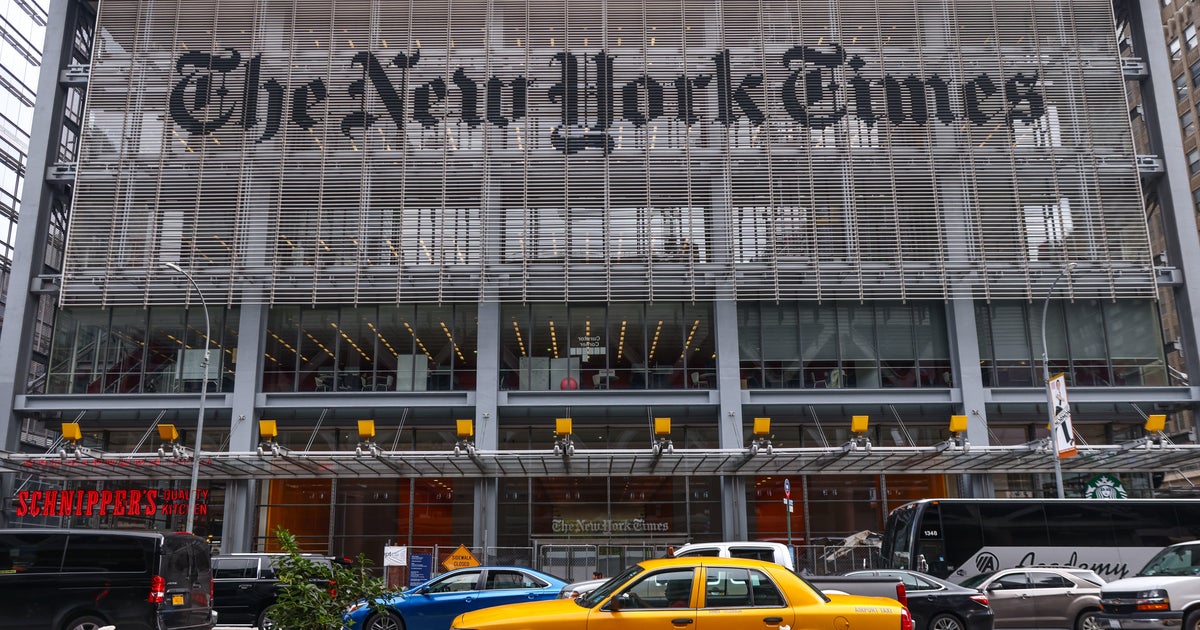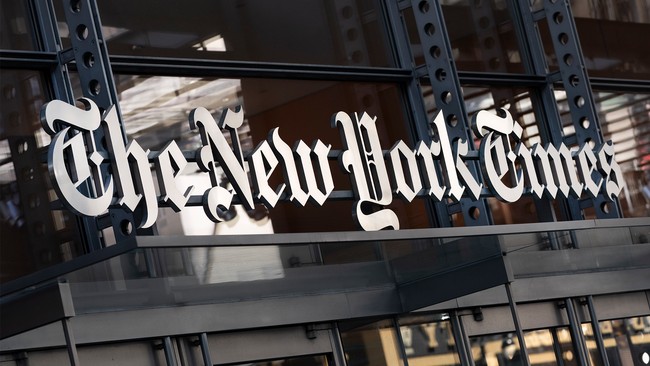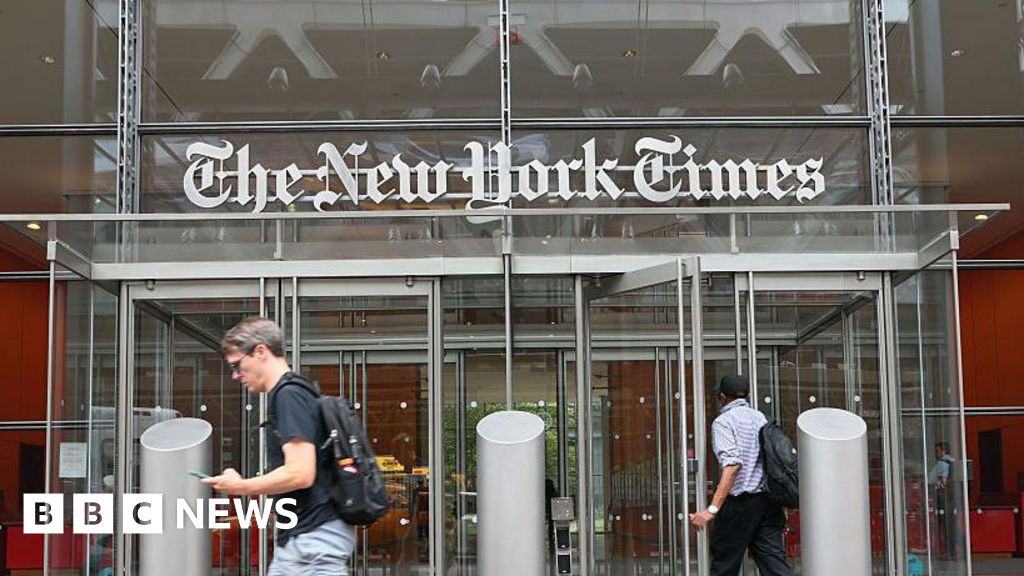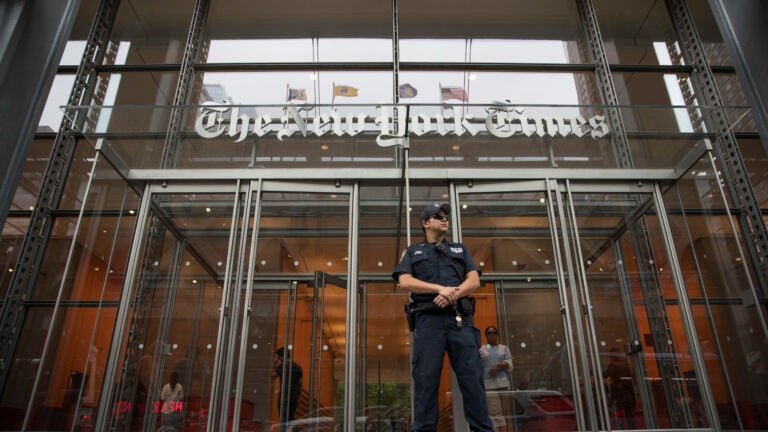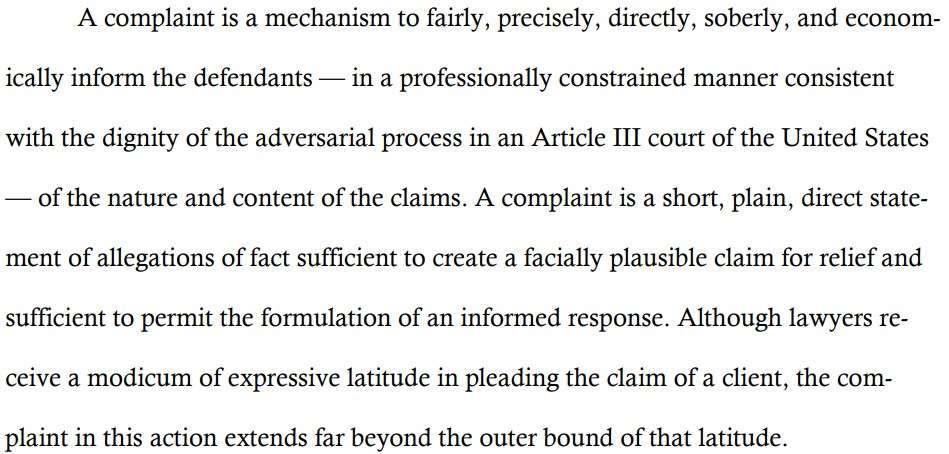Federal Judges Dismiss Trump's $15 Billion Defamation Lawsuit Against The New York Times
Multiple federal judges dismissed President Trump's $15 billion defamation lawsuit against The New York Times, citing the complaint's excessive length, tedious language, and failure to comply with federal rules.
Subscribe to unlock this story
We really don't like cutting you off, but you've reached your monthly limit. At just $5/month, subscriptions are how we keep this project going. Start your free 7-day trial today!
Get StartedHave an account? Sign in
Overview
- Multiple federal judges, including U.S. District Judge Steven Merryday, dismissed President Trump's $15 billion defamation lawsuit against The New York Times in courts in Florida and New York.
- The lawsuit, which targeted four journalists and Penguin Random House, was dismissed because the complaint was deemed overly long, tedious, biased, and violated federal rules for civil filings.
- Judges criticized the complaint for its length, noting it did not reach the first defamation count until page 80 and only raised two counts in 85 pages, failing to clearly inform defendants.
- The New York Times welcomed the ruling, with a spokesperson stating the complaint was a political document rather than a serious legal filing and an attempt to discourage independent reporting.
- Trump's legal team was given 28 days to file an amended complaint, which must not exceed 40 pages and adhere to federal rules, vowing to continue holding media accountable.
Report issue

Read both sides in 5 minutes each day
Analysis
Center-leaning sources frame this story by emphasizing the decisive rejection of Trump's lawsuit and validating the judge's strong criticism. They highlight The New York Times's celebratory response, portraying the lawsuit as a "political document" and an "intimidation tactic" against independent reporting, thereby reinforcing a narrative of Trump's legal action being frivolous and ill-conceived.
Articles (17)
Center (5)
FAQ
The federal judges dismissed Trump's lawsuit because the complaint was excessively long, tedious, filled with superfluous and florid language, and failed to comply with federal rules requiring a short and plain statement of the claim. The lawsuit did not clearly present the defamation counts until very late, making it difficult for defendants to understand the charges.
The judge gave Trump's legal team 28 days to file an amended complaint that must not exceed 40 pages and must adhere to the federal rules requiring clarity and conciseness in civil filings.
The lawsuit targeted four journalists at The New York Times as well as Penguin Random House, focusing on articles and a book published within two months before the last election.
The New York Times welcomed the judge's ruling, calling Trump's complaint a political document rather than a serious legal filing and an attempt to discourage independent reporting.
The judge criticized the complaint for being a ‘megaphone for public relations’ and a ‘podium for a passionate oration at a political rally,’ including laudatory statements about Trump and lengthy details irrelevant to the legal claims, making the filing improperly long and burdensome.
History
- This story does not have any previous versions.

